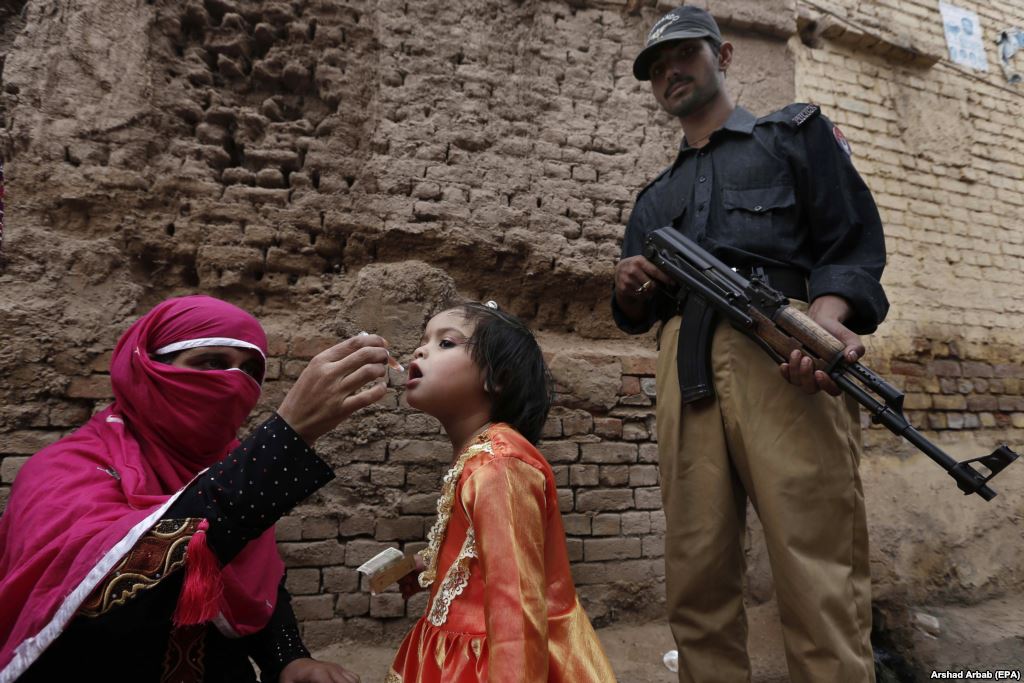Who Slams Pakistan on Polio Eradication
Polio cases continue to rise in Pakistan because of the threat posed by militants to health workers

NEW DELHI: The World Health Organisation has referred to Pakistan as the “greatest single risk to the achievement of global polio eradication.” In a new report, the international health body has said that Pakistan is responsible for 80 percent of polio cases reported across the globe.
“The situation is primarily due to a lack of access to children for vaccination, largely owing to a continuing ban on immunisation imposed by militants in the North and South Waziristan, and insecurity and killing of polio workers in the field,” the report said.
Earlier this month, as Pakistan started a long delayed nationwide campaign to vaccinate 34.16 million children, reports emerged that several thousand children did not receive their vaccinations owing to parents’ refusals.
There has been an increase in polio cases every year in Pakistan. The reason for this increase is partly attributable, as the WHO points out, to violence directed at polio workers, rendering Pakistan as one of three countries in the world, along with Afghanistan and Nigeria, where polio has not been eradicated.
This year, a new strain of polio was identified in Pakistan, with WHO warning that Peshawar has the world’s largest reservoir of the polio virus and that 90 percent of Pakistani polio cases were linked to this highly contagious strain of the disease which is found in Peshawar’s sewers.
The attacks against polio-workers in Pakistan escalated once it became known that the CIA had paid a Pakistani doctor, Shakil Afridi, to fake a vaccination campaign in Abbottabad, to acquire DNA samples from children inside a compound where al-Qaeda leader Osama bin Laden was based. The American intelligence’s scheme, in a bid to prove that bin Laden was in Abbottabad, involved comparing the DNA samples of the children to those of bin Laden’s sister, who had died in Boston in 2010.
This incident exacerbated the distrust of foreign intelligence services in Pakistan, and the Taliban have waged an all-out war against polio workers, repeatedly attacking health teams and denouncing vaccinations as part of a larger western/CIA agenda. The Afridi incident did grave damage to the credibility of the healthcare programme in Pakistan, which has seen previous success as polio figures declined from 350,000 to 250 in a span of twenty-five years.
The CIA came under widespread criticism for jeapordising the campaign. InterAction, a coalition of 200 non-governmental organisations, issued a statement reading: "The CIA's use of the cover of humanitarian activity for this purpose casts doubt on the intentions and integrity of all humanitarian actors in Pakistan, thereby undermining the international humanitarian community's efforts to eradicate polio.”
The distrust was fuelled by conspiracy theories that claim vaccinations are “un-Islamic” or an American ploy to sterilise children. The practice of marking houses that have been vaccinated, in order to differentiate them from houses that are still to be included in eradication efforts, was beset with rumours that vaccinators - accused of being CIA operatives - mark houses to be targeted by US drones.
The Taliban imposed ban on immunization has deprived about 170,000 children under the age of five from receiving polio vaccinations. The WHO states that Pakistan had 91 cases of polio in 2013, compared with 58 in 2012, with many attributing the attacks on polio campaigns which have resulted in the lack of access to people in need of vaccinations as a key reason for this increase.
“Issues involving children’s access to immunisation and safety of vaccinators must be resolved to ensure that the programme can be completed,” the WHO report said.



